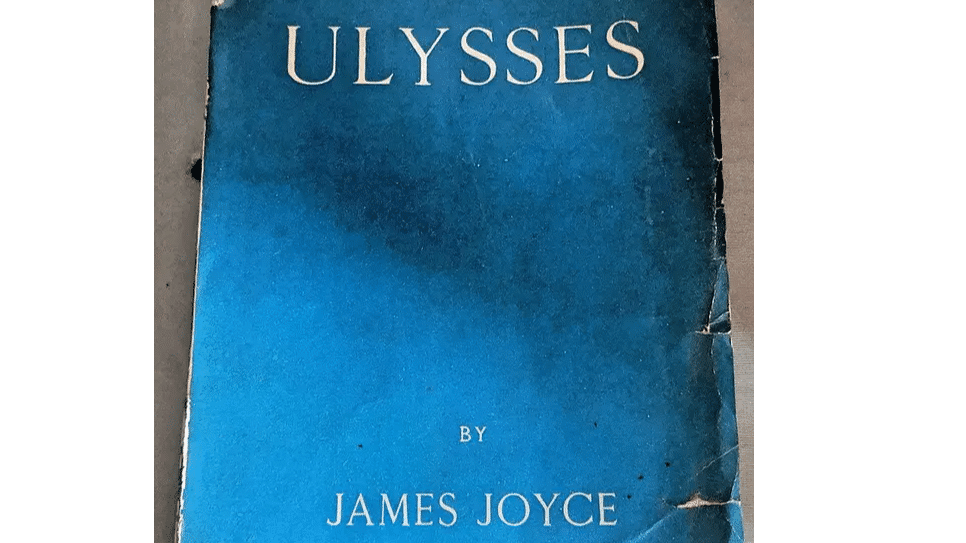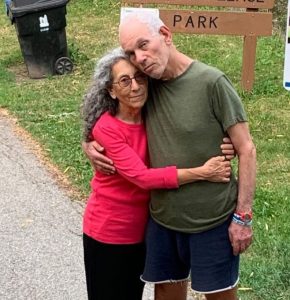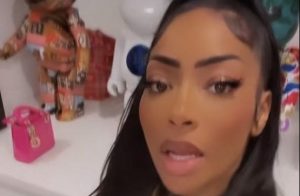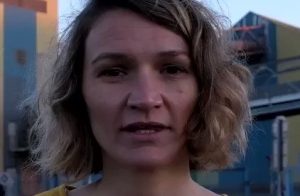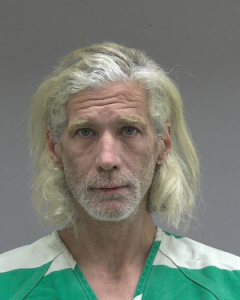“Mr Leopold Bloom ate with relish the inner organs of beasts and fowls. He liked thick giblet soup, nutty gizzards, a stuffed roast heart, liver slices fried with crustcrumbs, fried hencods’ roes. Most of all he liked grilled mutton kidneys which gave to his palate a fine tang of faintly scented urine.” That’s how James Joyce introduced his protagonist for Ulysses in the second chapter of the novel. A novel where you have a prospective prediction and the retrospective view meeting: T.S. Eliot famously told Virginia Woolf sometime in the 1920s that with the 1922 publication of Ulysses Joyce destroyed the whole of the 20th Century. It’s widely regarded as the number one novel of the 20th Century.
The Modern Library put it at number 1 in the list of 100 top novels decided by a Board. Anthony Burgess of The Clockwork Orange fame said in the Observer, “Everybody knows now that Ulysses is the greatest novel of the Century.”Ulysses like life is about everything and nothing. Put simply it is the story of a day. That simple reduction aside, it is an odyssey with chapter to chapter parallels to Homer’s The Odyssey, it is an epic about two races (Jews and Irish), it is about the cycles of a body, it is a cornucopia of personalities, it is exploration and inventiveness of language, and above all it is an endlessly open book of utopian epiphanies.
It holds up a mirror to the colonial capital that was Dublin on June 16, 1904, but it also offers redemptive glimpses of a future world which might be made over in terms of those utopian moments. The action unfolds in the early morning of June 16, 1904 and ends deep into the night (say 16 hours, 8am to 2pm). Joyce had met his future wife Nora Barnacle on that day and that was his way of dedicating something to her and June 16 is celebrated every year as Bloomsday. Every possible angle of Ulysses has been explored over the decades, especially the chapter wise waltz with The Odyssey. Vladimir Nabokov mapped out the route that Stephen Dedalus, the hero from the previous novel The Portrait of an Artist as a Young Man, and Leopold Bloom take on that day while missing each other till the evening on the streets of Dublin.The pubs in Dublin are aplenty.It doesn’t then come as a surprise that a gastronomic tour of Ulysses was always there and a death might have informed many people about it.
Scott Byrne wrote last Friday in The Guardian: “My father, David Byrne, who has died aged 78, was a restaurateur and hotelier who pioneered Bloomsday – the annual celebration of the life of James Joyce – as an epicurean festival. David was a man ahead of his time. In his approach to food, as to so much else in life, he followed the mantra to ‘keep it simple’. Whether his recipes were for lobster or offal, or a fresh green salad, they were always demonstrations of simple food, perfectly executed.”
David Byrne trained at the Shannon School of Hotel Management, a first of its kind school in Ireland that also had a formative period of study in Zurich, Switzerland. His son remembers him as a natural and gifted host.
Ulysses has 18 chapters (episodes) and they are in accordance with the ones in Homer’s Odyssey. Starting with Telemachus and ending with Penelope.
The fourth chapter of Ulysses begins with Leopold Bloom making breakfast in the kitchen of the Blooms’ home at 7 Eccles Street. Bloom feeds the cat some milk, walks to Dlugacz’s butcher shop to buy a kidney for his breakfast. He returns home to Molly, who is still in bed; he eats his breakfast, then brings Molly’s breakfast to her (she is still in bed). The motif of food in the episode suggests a strong parallel between Bloom of “Calypso” and Stephen of “Telemachus,” the two episodes taking place at the same time.
“In the 70s David married Deirdre Igoe, a tourist guide. After a brief stint in Hastings, East Sussex, they returned to Ireland with their young family and ran an outdoor catering business. Then in 1988, in the basement of our family home at 1 Martello Terrace in Sandycove, Co Dublin, they founded the South Bank restaurant. The restaurant commands a panoramic view of the Martello tower in which Joyce stayed for a few days in 1904 with his friend Oliver St John Gogarty. It is this Martello tower, now home to a James Joyce museum, that is immortalised as the early morning starting point for Leopold Bloom’s celebrated perambulation of Dublin in Joyce’s novel Ulysses.”
David and Deirdre saw a chance for the South Bank to be turned into a gastronomic event around Bloomsday. David got down to collating culinary references in Ulysses and came up with a Joycean breakfast menu of “nutty gizzards, urine-soaked kidneys and snot-green soup” to be relished as an alternative to sausage, bacon and eggs “by guests who were sewn up in Joycean costume and treated to readings from the novel, with Molly Bloom’s erotic soliloquy a memorable standout”.
Joyce once said that with me the thought is always simple but sometimes to get to the thought can be quite a journey. In Chapter 12, the action moves to a tavern where a new narrator appears talking about a man referred to as The Citizen. Anti-semitism comes out in the open and it is a very political chapter. However: the whole thing is told in the voice of someone else – saying to his friends at the pub later that night: “So let me told you what I saw today!!” He has a very distinctive voice, too – one of his phrases is “says I” – whenever he has spoken. Because he was part of the conversation with The Citizen and Bloom, he uses “says I” in almost every line of his story.
The writing of this episode is actually totally clear – it’s in a slang vernacular, Irish, but also very everyday language – not “literary”. What is Joyce up to? That’s not clear. Unless someone is handholding you, or you see. Little vertical slash marks all across the pages … I I I I I I I I I (eye eye eye eye eye eye eye eye) Cyclops’ eye is built into the text itself. You know it’s a new section because of how the text breaks up, and the change in style … but you have to figure out where you are in Homer’s epic. The episode is the parallel to the monstrous Cyclops episode. And so – the episode in Joyce’s book is filled with ‘I’. Also: that’s the reason it’s written in the first-person. In The Odyssey – Odysseus and the men escape. Odysseus got the Cyclops drunk – and then blinded him by shoving a hot stake through the Cyclops’ one eye.
Simplicity and complexity: going hand in hand.
The Shiela Variations, an excellent blog with a robust Joyce section, does a Bloomsday post every June 16 and this is the back story.
On June 15, 1904, young James Joyce sent a note to Nora Barnacle, who was a waitress at Finn’s Hotel. Barnacle was from Galway and had moved to Dublin. The two had had a chance encounter on the street, where she had wondered aloud if he was Swedish, because of his blue eyes. When she told him her name, he said something about Ibsen (his inspiration and guiding star as an artist). Nora did not know who Ibsen was but she knew she liked this Jimmy with the blue eyes. He had asked her “out” – which, in Dublin, in those days, meant going for a walk. But on the appointed day, she didn’t show up. So on June 15, 1904, he sent her this note:
“60 Shelbourne Road
I may be blind. I looked for a long time at a head of reddish-brown hair and decided it was not yours. I went home quite dejected. I would like to make an appointment but it might not suit you. I hope you will be kind enough to make one with me — if you have not forgotten me!
James A. Joyce 15 June 1904”
The next day they met. And the rest, as they say, is history.
Joyce opens the novel in that tower with these words: “Stately, plump Buck Mulligan came from the stairhead, bearing a bowl of lather on which a mirror and a razor lay crossed. A yellow dressing gown, ungirdled, was sustained gently behind him by the mild morning air. He held the bowl aloft and intoned:
–Introibo ad altare Dei.”
It ends with a 60-odd page—in the Penguin Modern Classics Edition—run-on sentence of Molly Bloom lying in bed. “…and the rosegardens and the jessamine and geraniums and cactuses and Gibraltar as a girl where I was a Flower of the mountain yes when I put the rose in my hair like the Andulasian used or shall I wear a red yes and how he kissed me under the Moorish wall and I thought well as well him as another and then I asked him with my eyes to ask again yes and then he asked me would I yes to say yes my mountain flower and first I put my arms around him yes and drew him down to me so he could feel my breasts all perfume yes and his heart was going like mad and yes I said yes I will Yes.”

